Filter by
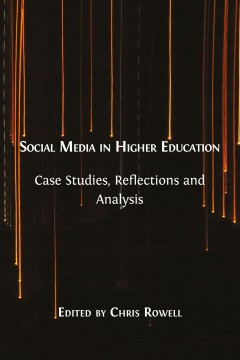
Social Media in Higher Education: Case Studies, Reflections and Analysis
'Social Media in Higher Education: Case Studies, Reflections and Analysis' helps to scaffold different learners from #beginner to #advanced and even facilitates learning by doing through the use of podcasts and case studies. In addition, it not only provides a unique insight into the evolution of social media but also encourages readers to reflect on the increasingly blurred lines of public and…
- Edition
- -
- ISBN/ISSN
- 9781783746705
- Collation
- 279p. ; ill.
- Series Title
- -
- Call Number
- 378.17344678 ROW s
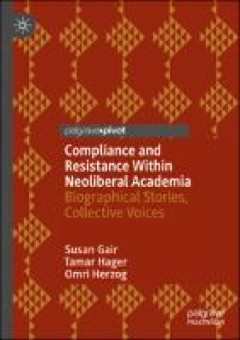
Compliance and resistance within neoliberal academia : biographical stories, …
This open access book reflects on academic life under a neoliberal regime. Through collaborative autoethnographies, the authors share stories about the everyday experiences, dilemmas and conflicts of three academics: the struggle for promotion, teaching’s challenges, the race to publish, confronting bureaucracy and institutional politics, as well as the resulting emotional stress. These stori…
- Edition
- 8
- ISBN/ISSN
- 9783030663186
- Collation
- 134 p.
- Series Title
- -
- Call Number
- 306.43 GAI c
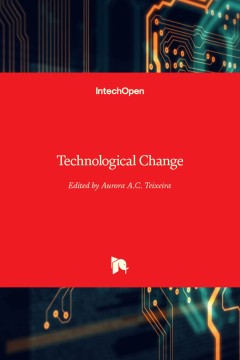
Technology change
Technological change is today central to the theory of economic growth. It is recognised as an important driver of productivity growth and the emergence of new products from which consumers derive welfare. It depends not only on the work of scientists and engineers, but also on a wider range of economic and societal factors, including institutions such as intellectual property rights and corpor…
- Edition
- -
- ISBN/ISSN
- 9789535156246
- Collation
- 254 p. : ill.
- Series Title
- -
- Call Number
- 403.6 TEI t
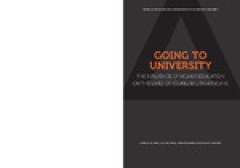
Going to University : The Influence of Higher Education on the Lives of Young…
Around the world, more young people than ever before are attending university. Student numbers in South Africa have doubled since democracy and for many families, higher education is a route to a better future for their children. But alongside the overwhelming demand for higher education, questions about its purposes have intensified. Deliberations about the curriculum, culture and costing of p…
- Edition
- Vol. 3
- ISBN/ISSN
- 9781928331704
- Collation
- 176p. ; ill.
- Series Title
- -
- Call Number
- 378.68 JEN g
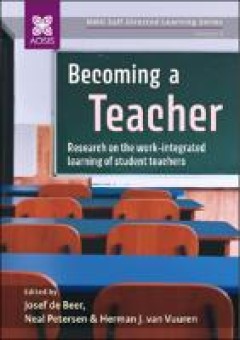
Becoming a teacher : Research on the work-integrated learning of student teac…
This book disseminates original research on learning in and from practice in pre-service teacher education. Authors such as Lederman and Lederman describe the student teaching practicum (or work-integrated learning [WIL]), which is an essential component of pre-service teacher education, as the ‘elephant in the room’. These authors note that 'the capstone experience in any teacher education…
- Edition
- Vol.4
- ISBN/ISSN
- 9781928523369
- Collation
- 470p. ; ill.
- Series Title
- NWU Self-Directed Learning Series
- Call Number
- 371.102 JOS b
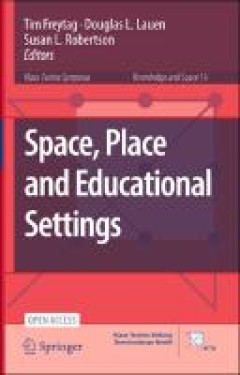
Space, Place and Educational Settings
This open access book explores the nexus between knowledge and space with a particular emphasis on the role of educational settings that are, both, shaping and being reshaped by socio-economic and political processes. It gives insight into the complex interplay of educational inequalities and practices of educational governance in the neighborhood and at larger geographical scales. The book ado…
- Edition
- vol. 16
- ISBN/ISSN
- 9783030785970
- Collation
- 227p. ; ill.
- Series Title
- Knowledge and Space
- Call Number
- 306.43 FRE s

What should schools teach? : disciplines, subjects and the pursuit of truth
The design of school curriculums involves deep thought about the nature of knowledge and its value to learners and society. It is a serious responsibility that raises a number of questions. What is knowledge for? What knowledge is important for children to learn? How do we decide what knowledge matters in each school subject? And how far should the knowledge we teach in school be related to aca…
- Edition
- ed. 2
- ISBN/ISSN
- 9781787358744
- Collation
- 262 p. : col, ill.
- Series Title
- -
- Call Number
- 375.001 CUT w
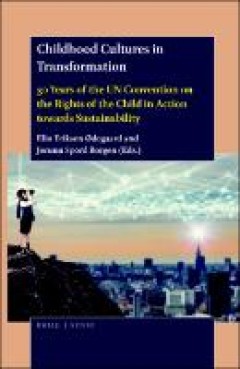
Childhood Cultures in Transformation : 30 Years of the UN Convention on the R…
This book investigates and uncover paradoxes and ambivalences that are actualised when seeking to make the right choices in the best interests of the child. The 1989 United Nations Convention on the Rights of the Child established a milestone for the 20th century. Many of these ideas still stand, but time calls for new reflections, empirical descriptions and knowledge as provided in this book. …
- Edition
- -
- ISBN/ISSN
- 9789004445666
- Collation
- 297p. ; ill.
- Series Title
- -
- Call Number
- 323.352 ELI c
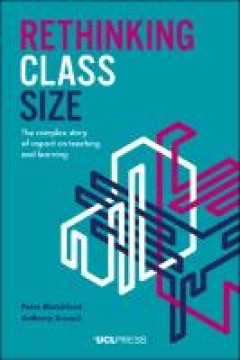
Rethinking Class Size : The complex story of impact on teaching and learning
The debate over whether class size matters for teaching and learning is one of the most enduring, and aggressive, in education research. Teachers often insist that small classes benefit their work. But many experts argue that evidence from research shows class size has little impact on pupil outcomes, so does not matter, and this dominant view has informed policymaking internationally. Here, th…
- Edition
- -
- ISBN/ISSN
- : 9781787358799
- Collation
- 328p. ; ill.
- Series Title
- -
- Call Number
- 371.251 PET r
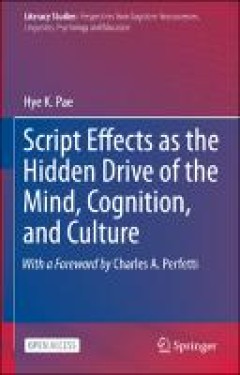
Script effects as the hidden drive of the mind, cognition, and culture
This open access volume reveals the hidden power of the script we read in and how it shapes and drives our minds, ways of thinking, and cultures. Expanding on the Linguistic Relativity Hypothesis (i.e., the idea that language affects the way we think), this volume proposes the “Script Relativity Hypothesis” (i.e., the idea that the script in which we read affects the way we think) by offeri…
- Edition
- Literacy Studies, 21
- ISBN/ISSN
- 9783030551520
- Collation
- 251 p.: ill.
- Series Title
- -
- Call Number
- 411.019 PAE s
 Computer Science, Information & General Works
Computer Science, Information & General Works  Philosophy & Psychology
Philosophy & Psychology  Religion
Religion  Social Sciences
Social Sciences  Language
Language  Pure Science
Pure Science  Applied Sciences
Applied Sciences  Art & Recreation
Art & Recreation  Literature
Literature  History & Geography
History & Geography